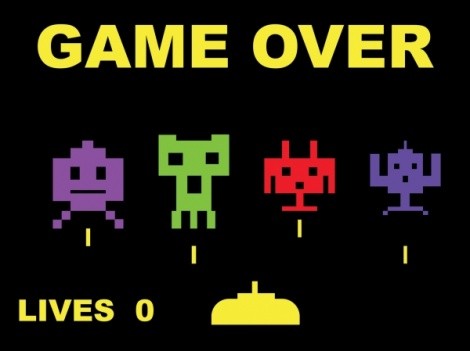
That almost never happens in Utah. Since 2005, the Utah Labor Commission has processed 8,038 worker claims of unpaid wages, none of which have led to criminal prosecution of the employer. Rushton’s case, however, is uniquely egregious, says Utah Labor Commission wage claim unit manager Brent Asay, and not just because there are so many employees owed money.
“The other thing that stood out is that people [left] with unpaid wages, but [Rushton] would keep hiring new people to come on board and would not pay the ones who had just left,” Asay says. “Then he would pay the new ones for awhile, then the same things happened to them. So there seemed to be a pattern.”
The unpaid-wage judgments in Rushton’s cases range from $5,000 to $26,000 per employee, totaling $1.68 million.
Rushton was owner of Salt Lake County-based Sensory Sweep Studios, also known as Fooptube, founded in 2001. The company, which developed games for Nintendo Wii and other game consoles, collapsed in 2009 under financial strain [see “Sensory Sweep Shortchange,” Dec. 9, 2009, CityWeekly.net]. The Utah Attorney General’s Office charged Rushton in April 2009 with five felonies for unpaid taxes, tax evasion, fraud and a pattern of unlawful activity—but none of those charges were for not paying employees.
After pleading guilty to tax evasion and a pattern of unlawful activity, Rushton was sentenced Dec. 13 to 180 days in jail, $1 million in restitution, six years probation and 200 hours of community service. Rushton does face civil judgments of $1.68 million for unpaid wages—which were secured by the Utah Labor Commission—and more fines from the U.S. Department of Labor. But some employees believe Rushton will never pay his debts—he hasn’t paid anything yet—so maybe he should pay with his freedom.
“We understand the state has put its interest first, and that is what it does, but we’re hopeful the state will now put our interest forward and do something to make things right on our behalf, like they have already done for themselves,” says former Sensory Sweep Studios employee Todd Smith.
“Six months [the length of Rushton’s jail term] is less than [what] most people suffered because of what he did,” says another former employee, Brent Anderson.
Though formal charges for the unpaid wages have not been filed, Asay says they are forthcoming.
“We did make a criminal-prosecution referral to the Attorney General’s Office, and we got word last week [that] now that the tax case is over, they can go ahead and pursue Mr. Rushton on the wage part,” Asay said Dec. 20.
Attorney General’s Office spokesman Scott Troxel said that, for now, his office would not comment on the potential for more charges against Rushton. “The attorney who would be able to answer those questions [Mark Baer] would prefer not to talk about it as it is ongoing,” Troxel said.
But if Rushton is already jailed, what good would another trial do, anyway? Attorney Dale Boam—who is not involved in the Rushton case but does represent employees in wage-claim cases—said criminally prosecuting Rushton for not paying his employees would help protect workers statewide. Businesses that are failing often accumulate many debts and civil judgments, Boam said, of which unpaid wages are just one on the pile. “There’s comes a point where it’s pouring water on a duck,” he says about civil judgments.
“When it comes down to it, criminal sanctions may be the only thing that will set any kind of precedent—not just for [Rushton]—because it sends a warning out to the system that it’s not just about fines anymore.”
Unpaid-wage claims have spiked in Utah during the recession. Claims have jumped 87 percent just since 2005, according to statistics from the Utah Labor Commission, totaling 2,714 claims in 2009.
Rushton’s attorney, Darin Goff, said, “I don’t see any need for him to be further punished. … This has been ruinous.” To justify a criminal prosecution, Goff said, “It needs to be demonstrated that there was an intent to not pay workers, not that they just didn’t get paid, because, really, people don’t get paid all the time. Companies fail.”